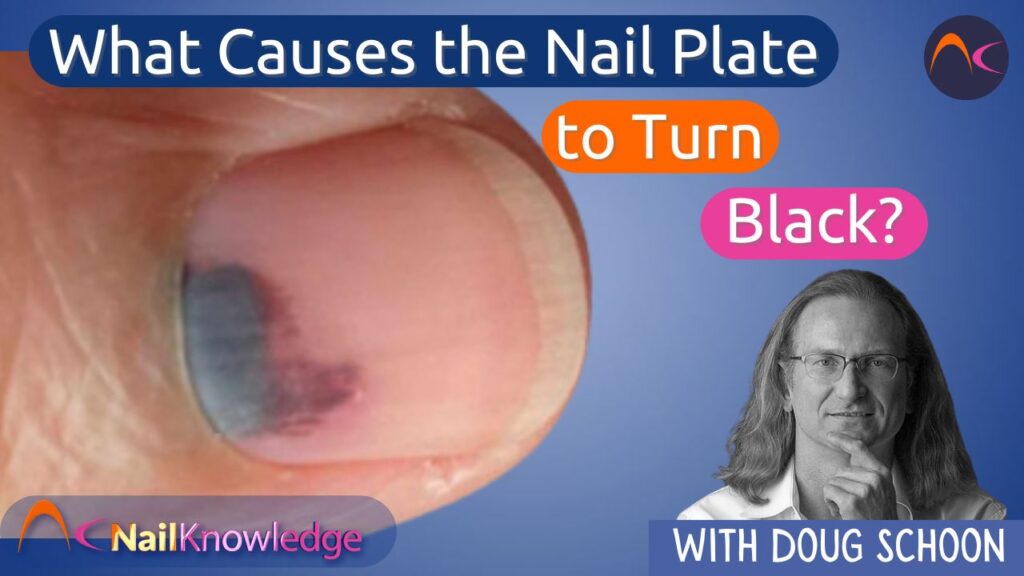Several things can cause the nail plate to turn black, or at least darkly colored. One of the most common causes of darkly colored nail plates is physical damage that leads to bruising of the nail bed.
Splinter Hemorrhages: Causes and Effects
Hard bangs or knocks to the nail plate can lead to breaks in the tiny blood vessels in the nail bed, which can cause them to leak. These are called splinter hemorrhages and most often appear like tiny black lines running along with the direction of nail growth.
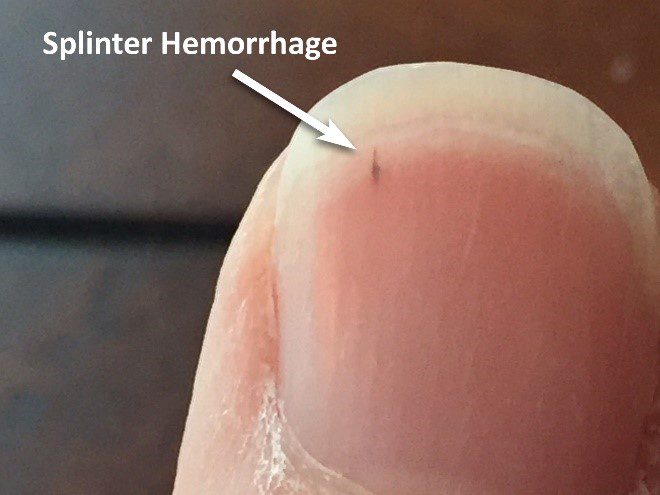
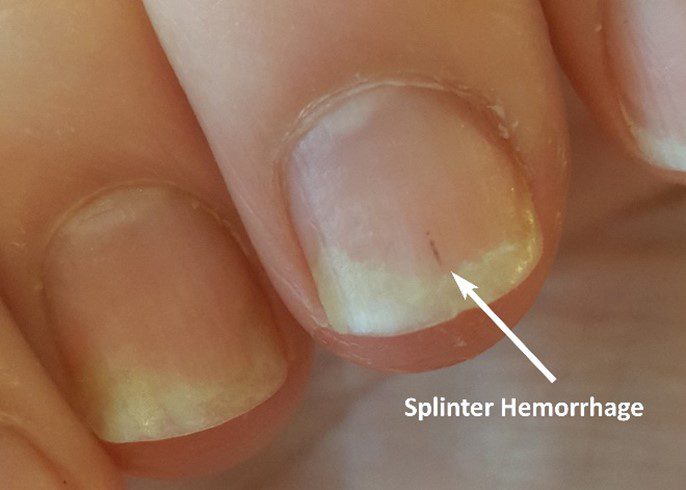
When the damage is more severe, larger amounts of blood collect underneath the plate. A significant amount of damage could lead to blackening of the entire nail plate. The blood on the nail bed may appear to be red at first, but will eventually turn black. This black stain could persist for months after the damaged nail bed heals.
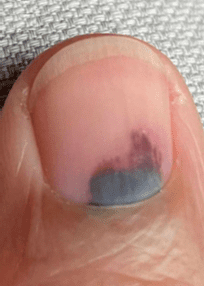
Impact of Drugs and Diseases on Nail Discoloration
Certain drugs can affect the matrix cells and this can lead to dark discolorations of the nail plate. For instance, drugs containing metallic silver can cause dark black stains, as well as a surgical scrub used in hospitals which contain the ingredient “chlorohexine”.
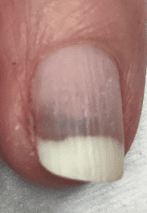
Diseases of the nail or illness somewhere else in the body may also cause the nail matrix cells to produce darkly discolored nail plates. For example, diabetes can cause the nail plate to yellow and nail psoriasis often leads to nail plates that are pitted, more porous and pick up stains more easily.
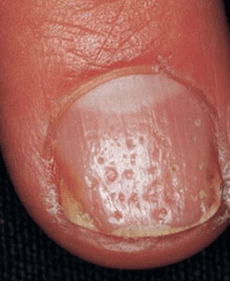
Nail Discoloration Due to Chronic Diseases and Other Factors
Chronic diseases such as kidney or liver problems can cause nails to blacken. Tumors in the nail matrix or surrounding areas can also cause dark discolorations in the nail plate, which is something that nail technicians should watch for. However, it is fairly common and normal for people with very dark skin to develop black strips that run the length of the nail plate. This can happen because excessive amounts of melanin in the skin can find its way into the nail plate.
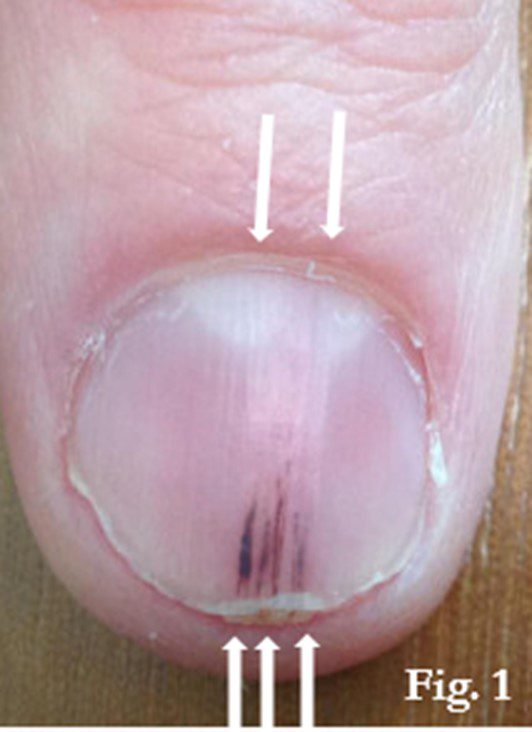
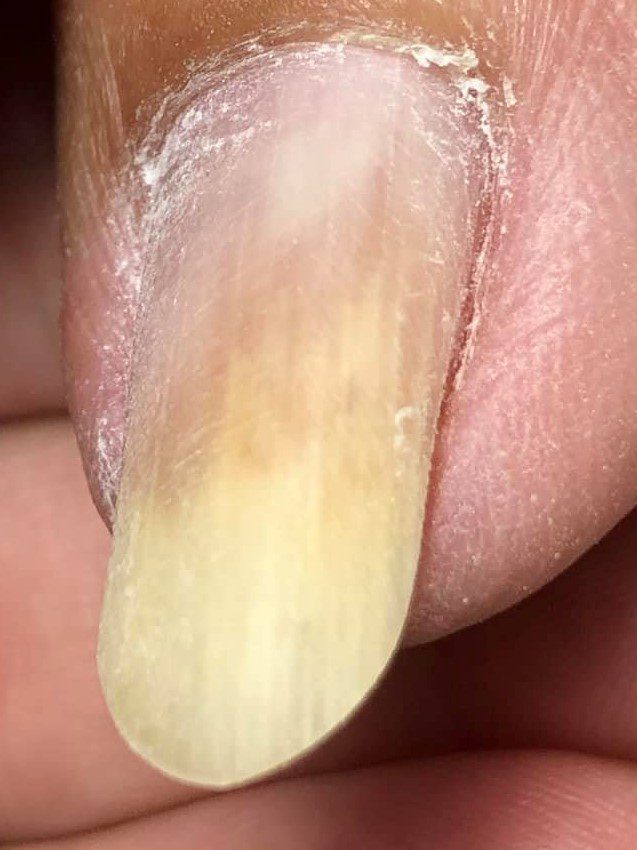
Nail Discoloration and When to Seek Medical Advice
When this occurs on nails of those with African or Asian ancestries, this may be normal. However, when this occurs on nail plates of those with light colored skin such as Caucasians, in rare instances this can be a sign of potential trouble. Such nail plates should be examined by a medical professional to determine the causes, which could be one of many disorders.
Finally, this change in coloration could indicate a nail infection, so in any case this type of change should be cause for concern. I recommend refraining from treating this nail until it can be examined by a medical professional to determine if an infection is present.

